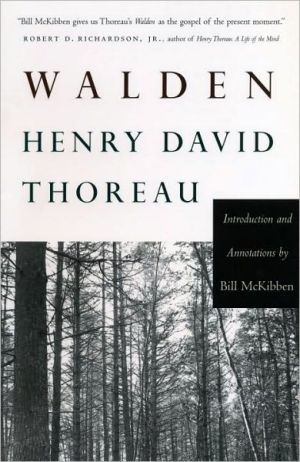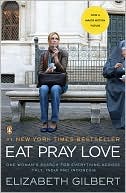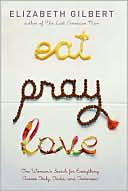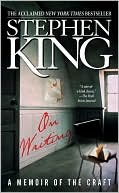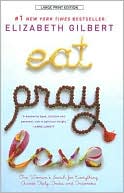Walden
The ultimate gift edition of Walden for bibliophiles, aficionados, and scholars.\ Thoreau’s literary classic, an elegantly written record of his experiment in simple living, has engaged readers and thinkers for a century and a half. This edition of Walden is the first to set forth an authoritative text with generous annotations. Thoreau scholar Jeffrey S. Cramer has meticulously corrected errors and omissions from previous editions of Walden and here provides illuminating notes on the...
Search in google:
Henry Thoreau is considered, along with Edgar Allan Poe, Ralph Waldo Emerson, Walt Whitman and Nathaniel Hawthorne, as one of the leading figures in early American literature, and Walden is without doubt his most influential book. It recounts the author's experiences living in a small house in the woods around Walden Pond near Concord in Massachusetts. Thoreau constructed the house himself, with the help of a few friends, and one of the reasons why he moved into it was in an attempt to see if he could live independently and away from society. The result is an intriguing work that blends natural history with philosophical insights and includes many illuminating quotations from other authors. Thoreau's wooden shack has won a place for itself in the collective American psyche, a remarkable achievement for a book with such modest and rustic beginnings.Henry David Thoreau was born in Concord, Massachusetts, in 1817, and attended Concord Academy and Harvard. After a short time spent as a teacher, he worked as a surveyor and a handyman, sometimes employed by Ralph Waldo Emerson. Between 1845 and 1847 Thoreau lived in a house he had built himself on Emerson's property near to Walden Pond. During this period he completed A Week on the Concord and Merrimack Rivers and wrote the first draft of Walden, the book that is generally judged to be his masterpiece. He died of tuberculosis in 1862, and much of his writing was published posthumously.The handsome volumes in The Collectors Library present great works of world literature in a handy hardback format. Printed on high-quality paper and bound in real cloth, each complete and unabridged volume has a specially commissioned afterword, brief biography of the author and a further-reading list. This easily accessible series offers readers the perfect opportunity to discover, or rediscover, some of the world's most endearing literary works.The volumes in The Collector's Library are sumptuously produced, enduring editions to own, to collect and to treasure. Nancy Szokan - Washington Post Book World Each [volume] is preceded by a substantive, lively and idiosyncratic essay. . . . Together, the essays are a mini-course in Thoreau and the trends he launched in American thought.
Walden\ \ By Henry David Thoreau \ Running Press Book Publishers\ Copyright © 1987 Henry David Thoreau\ All right reserved. \ ISBN: 0894714961 \ \ \ Introduction\ Economy\ \ \ \ \ \ When I wrote the following pages, or rather the bulk of them, I lived alone, in the woods, a mile from any neighbor, in a house which I had built myself, on the shore of Walden Pond, in Concord, Massachusetts, and earned my living by the labor of my hands only. I lived there two years and two months. At present I am a sojourner in civilized life again.\ \ \ \ I should not obtrude my affairs so much on the notice of my readers if very particular inquiries had not been made by my townsmen concerning my mode of life, which some would call impertinent, though they do not appear to me at all impertinent, but, considering the circumstances, very natural and pertinent. Some have asked what I got to eat; if I did not feel lonesome; if I was not afraid; and the like. Others have been curious to learn what portion of my income I devoted to charitable purposes; and some, who have large families, how many poor children I maintained. I will therefore ask those of my readers who feel no particular interest in me to pardon me if I undertake to answer some of these questions in this book. In most books, the I, or first person, is omitted; in this it will be retained; that, in respect to egotism, is the main difference. We commonly do not remember that it is, after all, always the first person that is speaking. I should not talk so much about myself if there were anybody else whom I knew as well. Unfortunately, I am confined to this theme by the narrowness of my experience. Moreover, I, on my side, require of every writer, first or last, a simple and sincere account of his own life, and not merely what he has heard of other men's lives; some such account as he would send to his kindred from a distant land; for if he has lived sincerely, it must have been in a distant land to me. Perhaps these pages are more particularly addressed to poor students. As for the rest of my readers, they will accept such portions as apply to them. I trust that none will stretch the seams in putting on the coat, for it may do good service to him whom it fits.\ \ \ \ I would fain say something, not so much concerning the Chinese and Sandwich Islanders as you who read these pages, who are said to live in New England; something about your condition, especially your outward condition or circumstances in this world, in this town, what it is, whether it is necessary that it be as bad as it is, whether it cannot be improved as well as not. I have travelled a good deal in Concord; and everywhere, in shops, and offices, and fields, the inhabitants have appeared to me to be doing penance in a thousand remarkable ways. What I have heard of Bramins sitting exposed to four fires and looking in the face of the sun; or hanging suspended, with their heads downward, over flames; or looking at the heavens over their shoulders "until it becomes impossible for them to resume their natural position, while from the twist of the neck nothing but liquids can pass into the stomach"; or dwelling, chained for life, at the foot of a tree; or measuring with their bodies, like caterpillars, the breadth of vast empires; or standing on one leg on the tops of pillarseven these forms of conscious penance are hardly more incredible and astonishing than the scenes which I daily witness. The twelve labors of Hercules were trifling in comparison with those which my neighbors have undertaken; for they were only twelve, and had an end; but I could never see that these men slew or captured any monster or finished any labor. They have no friend Iolaus to burn with a hot iron the root of the hydra's head, but as soon as one head is crushed, two spring up.\ \ \ \ I see young men, my townsmen, whose misfortune it is to have inherited farms, houses, barns, cattle, and farming tools; for these are more easily acquired than got rid of. Better if they had been born in the open pasture and suckled by a wolf, that they might have seen with clearer eyes what field they were called to labor in. Who made them serfs of the soil? Why should they eat their sixty acres, when man is condemned to eat only his peck of dirt? Why should they begin digging their graves as soon as they are born? They have got to live a man's life, pushing all these things before them, and get on as well as they can. How many a poor immortal soul have I met well-nigh crushed and smothered under its load, creeping down the road of life, pushing before it a barn seventy-five feet by forty, its Augean stables never cleansed, and one hundred acres of land, tillage, mowing, pasture, and woodlot! The portionless, who struggle with no such unnecessary inherited encumbrances, find it labor enough to subdue and cultivate a few cubic feet of flesh.\ \ \ \ But men labor under a mistake. The better part of the man is soon plowed into the soil for compost. By a seeming fate, commonly called necessity, they are employed, as it says in an old book, laying up treasures which moth and rust will corrupt and thieves break through and steal. It is a fool's life, as they will find when they get to the end of it, if not before.\ Continues...\ \ \ \ Excerpted from Walden by Henry David Thoreau Copyright © 1987 by Henry David Thoreau. Excerpted by permission.\ All rights reserved. No part of this excerpt may be reproduced or reprinted without permission in writing from the publisher.\ Excerpts are provided by Dial-A-Book Inc. solely for the personal use of visitors to this web site. \ \
Economy1Where I lived, and what I lived for78Reading97Sounds108Solitude125Visitors135The bean-field150The village162The ponds168Baker farm194Higher laws202Brute neighbors214House-warming228Former inhabitants; and winter visitors246Winter animals262The pond in winter273Spring289
\ School Library JournalGr 9 Up-Henry David Thoreau's classic, first published in 1854 and reporting on his experiences at the eponymous site where he lived in physical and social independence during the mid-1840's, receives refreshing treatment here. William Hope reads leisurely but with feeling, offering listeners the illusion that the author is speaking directly to them. The abridgements are not substantive, so listeners will feel that they have become acquainted with the complexities of a text that is both orderly and sprinkled with irony and other literary devices. The chapters are tastefully set off by musical interludes that complement Thoreau's own rhythms. Not only is this an excellent alternative for students assigned to read the text that is often offered in tiny print without benefit of margins, but it is also possible to suggest this to thoughtful teens who are seeking an intellectually engaging listening experience for their personal enjoyment. Hope's pacing invites readers with minimal skills to accompany their print foray with his narration. The careful editing here assures that they will not become lost between page and sound.-Francisca Goldsmith, Berkeley Public Library, CA Copyright 2001 Cahners Business Information.\ \ \ \ \ Washington Post Book WorldEach [volume] is preceded by a substantive, lively and idiosyncratic essay. . . . Together, the essays are a mini-course in Thoreau and the trends he launched in American thought.\ — Nancy Szokan\ \ \ From the Publisher"The pacing and delivery of the message are both clear and easy to absorb, making this classic beautifully suited to the audiobook format, especially with Foster's consistent voice taking control." —-AudioFile\ \ \ \ \ Washington Post Book WorldEach [volume] is preceded by a substantive, lively and idiosyncratic essay. . . . Together, the essays are a mini-course in Thoreau and the trends he launched in American thought.\ \ \ \ \ John UpdikeWalden and Leaves Of Grass have emerged over time as the two great testaments of American individualism, assuring the New World, traditional reassurances failing, of the value, power, and beauty of the unfettered self.\ \ — John Updike\ \ \ \ \ Matt TraversThe countless admirers of Henry David Thoreau will be delighted by the appearance of this lavishly produced twenty-first century edition.\ \ \ \ —Matt Travers\ \
